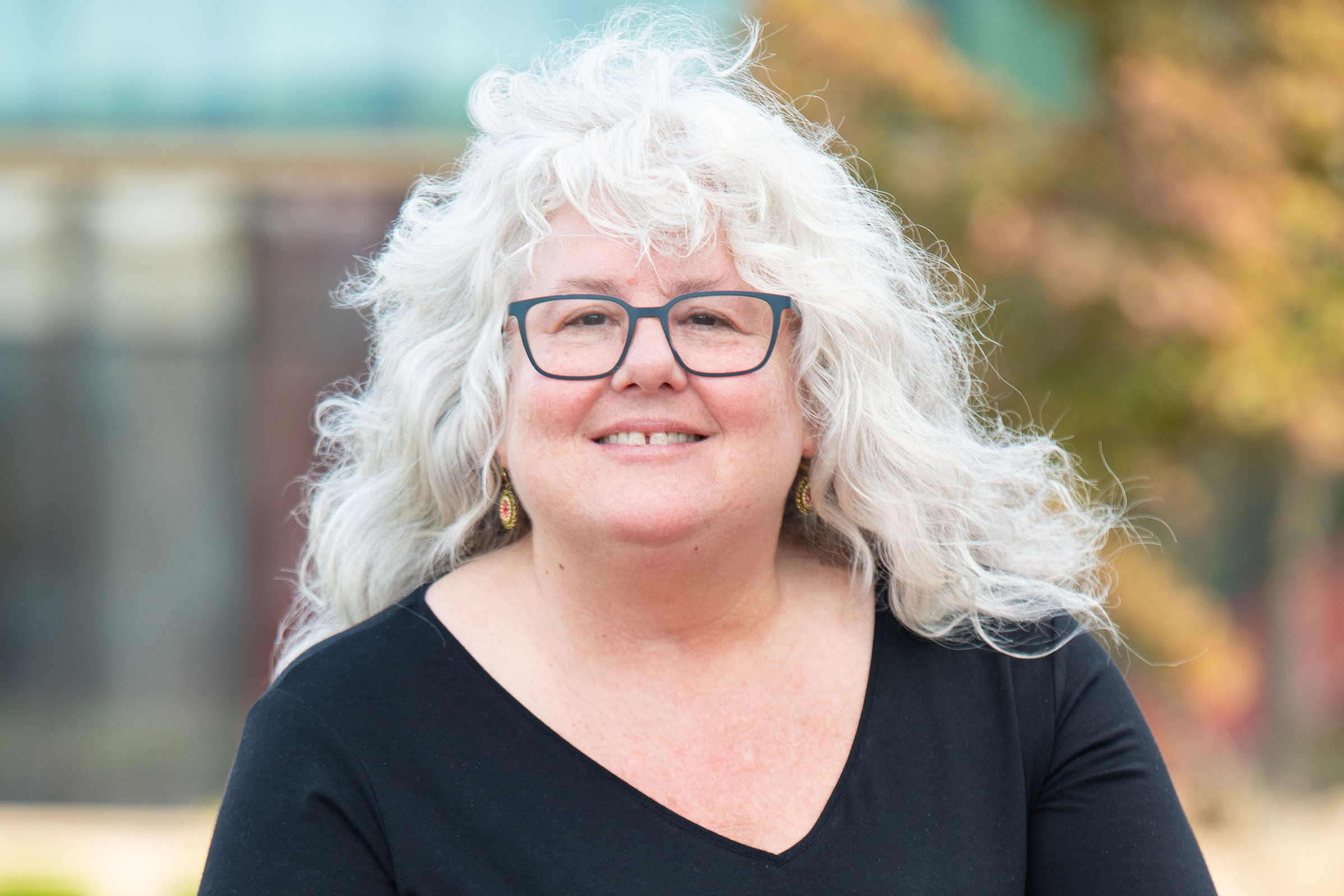Although poet Dana Levin has already published four collections, Maryville’s distinguished writer-in-residence quaked at the prospect of birthing her fifth collection “Now Do You Know Where You Are” into the world.
“I thought, ‘No one will care and it will be met with utter silence,’” Levin said.
But instead, it’s been met with loud and lavish praise. The poetry collection earned rave reviews from NPR, the New Yorker, the Washington Post and Poets & Writers magazine among others, and a coveted, full-page write-up in The New York Times. She was also recently named Best St. Louis Poet by The Riverfront Times.
“I wish my mother was alive so I could show it to her,” Levin said. “Because she would have loved it.”
Levin wrote the poems between 2016 and 2020. It was a time of national upheaval — a polarizing president and a pandemic — and personal transition — leaving Santa Fe, her home of 19 years, for St. Louis and her position at Maryville. In this excerpt from a poem called “Pledge,” Levin contemplates the use of social media to cope with change.
On Facebook we are taking turns alarming and exasperating
and bolstering each other, helping and hindering each other,
advising and scolding each other, every once in a while inspire-
ing each other, deflating each other, frightening each other,
encouraging each other, sharing action items and telephone
numbers and horrible news articles, and every once in a while
someone still posts a picture of a baby or food.
“All the poems seem driven by this feeling of uncertainty and disorientation and trying to re-orient myself,” Levin said.
The New York Times review focused on Levin’s references to writer’s block. Ploughshares literary magazine zeroed in on ideas about the present and past existing together in the act of remembering.
“One of the great things about art is that it allows people to have a communal experience and at the same time a personal and subjective experience,” Levin said. “I’m delighted by that.”
The Heart of Her Maryville Mission
One of Levin’s favorite sayings is, “Es bonito equivocarse: It’s a beautiful thing to make a mistake.” Even after 30 years as a teacher, Levin says she still learns from her mistakes. Earlier this term, she found herself emphasizing the architecture of poetry over its emotional impact.
“I wasn’t giving the students enough time to just talk about how it made them feel, which is the basic way we connect with poetry,” Levin said.
She began spending more time with students’ responses in addition to teaching about building blocks like word choice and pattern. Craft is of primary importance to those who go on to a deeper study of poetry. But most of her students won’t become professional poets. Many are majoring in physical therapy or business or any one of Maryville’s numerous academic concentrations. Providing them with an outlet for expression “gets to the heart of what I consider my mission at Maryville,” Levin said.
“A class like mine is where they get to play and engage their imaginations,” she said. “The thing about writing poems is there’s not a hard right or wrong.”
Recently, a student read aloud their poem about trying to find peace when they’re stressed out. Another student told him, “I can totally relate to this.”
“Just having somebody say, ‘I see it,’ is very important,” Levin said. “The student who shares the poem knows they’re not isolated.”
‘A thriving humanities presence’
Since Levin accepted her Maryville post in 2015, assistant professor of English Justine Bowers, PhD, has instituted a “Writes of Spring” writers series showcasing the work of University faculty. The series taps into a long history of celebrating literature at Maryville, recently unearthed by Professor of English Germaine Murray, PhD. In the 1940s, Katherine Porter and Kate Chopin were among the authors who visited campus.
Levin is grateful to Maryville for its support of creative writing. “Anytime I might have an idea or want to bring a visitor to campus, everybody’s very enthused and tries to find funds and ways to do it,” Levin said. “And it all feeds back into my own writing life.”
During Levin’s tenure, the University has added several popular introductory and advanced courses as well as independent studies. Maryville is quick to greenlight Levin’s ideas for new courses such as a class exploring short forms across genres, in poetry, nonfiction and fiction.
“Maryville is known for its programs in the health professions and design and visual arts,” Levin said. “But creative writing has definitely been enhanced over the last few years.”
In The New York Times review of “Now Do You Know Where You Are,” Srikanth Reddy called the book “emotionally risky and artistically gutsy” and Levin’s narrator “searching” and “resilient.” The Poets & Writers review said Levin “calls on beloveds and ancestors, great thinkers and religions to piece together a map of existence.”
Levin is hopeful the national beam of praise for her book will highlight the University’s growing literary reputation. “I hope it helps people to understand Maryville University not only offers a superlative education but has a thriving humanities presence,” Levin said.
